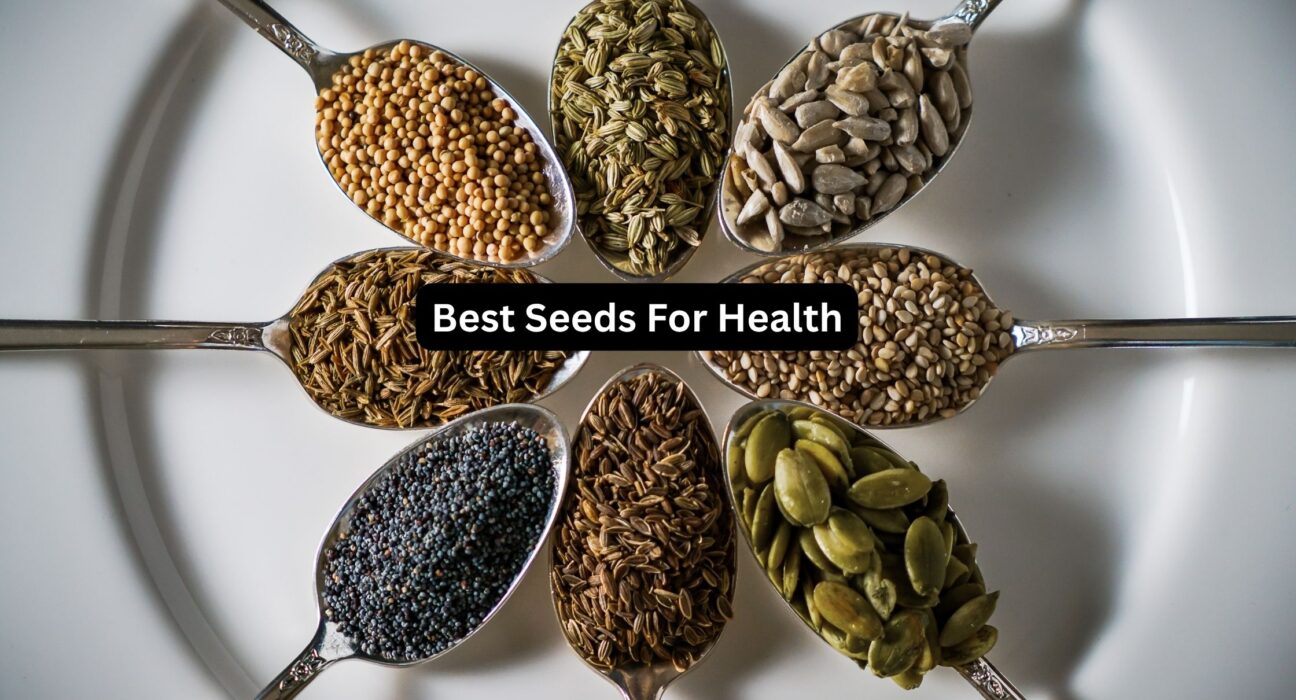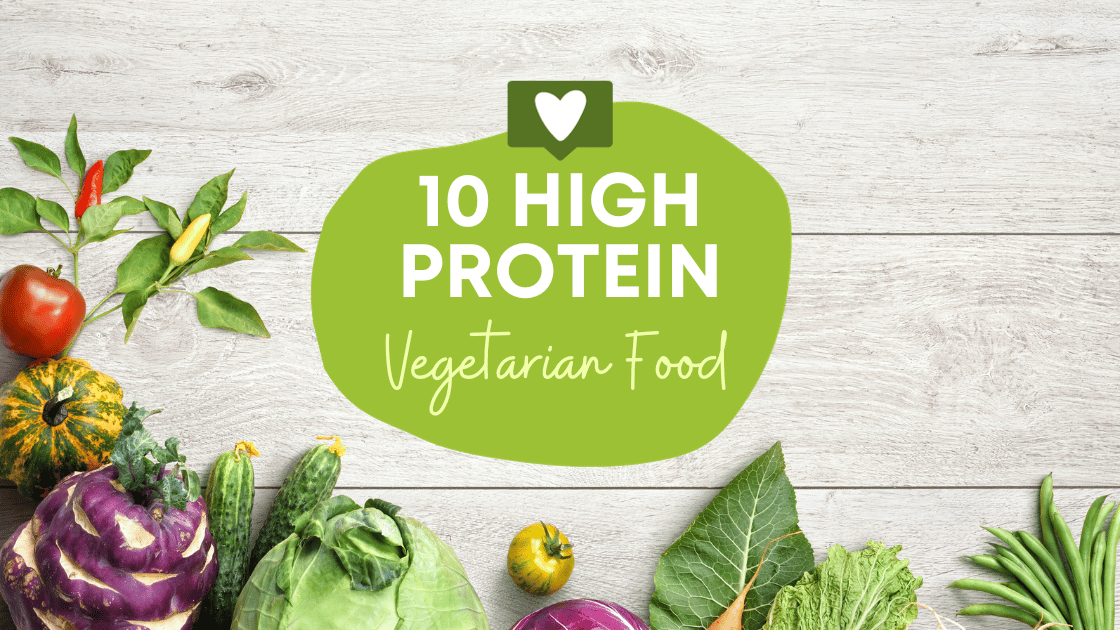7 Healthy Seeds That Boost Immunity and Improve Gut Health

In a health-focused society, even minor changes to one’s diet can yield a great impact. One impactful change is the integration of seeds into one’s daily meals. These seeds, despite their small size, contain a wealth of vitamins, minerals, antioxidants, fiber, and healthy fats, to aid well-being.
Seeds possess numerous benefits, ranging from aiding in digestion and boosting one’s immunity, to improving heart health and aiding in weight management. The ease with which seeds can be added to one’s regimen is an added advantage; be it blending into smoothies, snacking, or even sprinkling on top of salads.
In this post, we will highlight and discuss seven of the most effective, nutrient-dense seeds that can be easily incorporated into one’s routine. These seeds can help enhance one’s gut health, boost immunity, regulate metabolism, and provide sustained energy. With this knowledge, even beginners in health and nutrition will feel empowered to make more informed choices. Backed by reliable scientific research, knowledge, and practical wisdom, let us discover the top seven seeds that can be easily implemented in one’s daily routine and diet, which will greatly impact overall health.
Why Are Seeds So Important for Health?
Prior to examining specific types of seeds, it is beneficial to reflect on their importance in the health and nutrition domains as follows:
1. Compact Nutritional Richness
With vitamins (E, and B-complex), minerals (zinc, magnesium, and iron), fiber, and essential fatty acids, seeds stand as a rich and compact source of crucial nutrients.
2. Immune System Enhancers
These seeds have immune-boosting properties due to their antioxidant values that counter inflammation and oxidative stress.
3. Support Digestive System Health
With high fiber and prebiotic content, many seeds help to maintain regular bowel movements, good gut lining, and beneficial gut flora.
4. Plant Based Protein
Many seeds have a complete or close to complete protein profile making them ideal for vegans, vegetarians, and fitness lovers.
5. Obesity Prevention
Seeds high in fiber promote a healthy appetite and curb cravings in addition to stabilizing blood sugar.
6. Good for Heart and Brain
With omega-3s and magnesium, seeds help reduce bad cholesterol and support mental sharpness and cardiovascular functions.
Top 7 seeds to consume for overall well-being and specifically gut health, and immunity.
1. Chia Seeds
Chia Seeds’ Nutritional Value
Calories (2 tbsp): ~137
Fiber: 11g
Protein: 4g
Omega 3: 5g
Calcium, Magnesium, Zinc, and Antioxidants.
Chia Seeds’ Health Benefits
- Boosts gut health with high soluble fiber
- Detox the digestive tract
- Rich in omega-3s that support immunity and reduce inflammation
- Aid in weight loss by keeping you full longer
- Promotes heart health by lowering LDL cholesterol.
How to Eat Chia and Flax Seeds
Soak 1–2 tablespoons of chia seeds in water or almond milk for 15–20 minutes.
Add to smoothies, oatmeal, yogurt, or puddings
Can use in baking too as an egg replacer.
Pro Tip: Soaked chia seeds are gentler on the digestive system and easier to absorb.
2. Flaxseeds
Nutritional Benefits of Flaxseeds
Calories (1 tbsp): ~55
Fiber: 2.8g
Protein: 1.9g
Omega-3s: 2.4g
Lignans (antioxidants)
Health Benefits of Flaxseeds
- Contains both soluble and insoluble fibers that help in the digestion
- Lessen constipation and enhance bowel regularity
- Provides lignans that strengthen immunity and protect the body from some cancers
- Assist in balancing the hormones (especially beneficial to women)
- Lower blood pressure and enhance cardiovascular health
Flax and Chia Seeds: Best Ways to Consume Them
Best to take flaxseeds in powdered form so that the body can absorb the nutrients better
Add to oatmeal, smoothies, protein shakes or sprinkle on top of cereals
Pair with Greek yogurt for a breakfast that promotes gut health
Pro Tip: Keep ground flaxseeds in the fridge to keep them from going rancid.
3. Pepitas (Pumpkin Seeds)
Pepitas (Pumpkin Seeds) Nutritional Summary
Calories (28g) : ~151
Protein : 7g
Fiber : 1.7g
Iron, Zinc, Magnesium, Antioxidants
Health benefits of Pepitas (Pumpkin Seeds)
- Zinc found in pumpkin seeds helps in maintaining the immune health
- Contains high magnesium that helps in digestive function and inflammation
- Antioxidants protect the gut lining from oxidized inflammation damage
- Effective snack high in protein that helps in muscle recovery and immunity.
- Contain tryptophan that helps in restful sleep.
How to eat Pepitas (Pumpkin Seeds)
- Healthy snacking by roasting and spicing them.
- Including them in soups, salads and energy bars.
- In blending them into nut butters and trail mix.
- Pro Tip: To reduce sodium intake, opt for unsalted or dry roasted seeds.
4. Sunflower Seeds
Nutritional Value of Sunflower Seeds
Calories (1 oz): ~165
Protein: 5.5g
Vitamin E: Over 35% of daily requirement
Selenium, Magnesium, Iron
Health Benefits of Seeds Like Sunflower
- Vitamin E boosts immune defense as an antioxidant.
- Selenium aids inflammation and thyroid function.
- Sunflower seeds contain fiber and healthy fats, promoting digestion and metabolism.
- Helps flatten blood sugar levels.
How to Enjoy Sunflower Seeds
- Enjoy as a roasted snack or homemade granola.
- Topped on avocado toast or stirred into yogurt.
- Blend into savory herb and garlic seed spread.
- Avoid sugar or oil-laden sunflower seed snacks.
5. Sesame Seeds
Nutritional Value of Sesame Seeds
Calories: ~52 per 1 tbsp serving
Protein: 1.6g
Calcium, Magnesium, Phosphorus, Zinc
Rich in sesamin and sesamol, exclusive antioxidants.
Health Benefits of Sesame Seeds
- Improve gut health by assisting with bowel movements.
- Help in regulating blood pressure and cholesterol levels.
- Rich in healthy fats and minerals, boosts immunity.
- May regulate hormones and support bone health.
How to Eat Sesame Seeds
Use as a topping on salads or noodles to enhance their nutritional profile.
Add to tahini (sesame paste) or homemade hummus.
In smoothies and desserts, add black sesame seeds for enhanced flavor.
Pro Tip: Lightly toasting sesame seeds not only enhances their flavor but also their nutrients.
6. Hemp Seeds
Nutritional Value of Hemp Seeds
Hemp seeds contain a good balance of omega-3 and omega-6 fatty acids alongside notable minerals such as iron, magnesium and zinc.
With a caloric value of ~170 for 3 tablespoons, hemp seeds provide 10g of protein.
Health Benefits of Hemp Seeds
Hemp seeds support tissue repair and muscle recovery as well as immune cell activity due to being one of the protein rich seeds available.
The high fiber in hemp seeds aids in digestion, also they help in reducing inflammation while also promoting cardiovascular health.
How to Eat Hemp Seeds
Hemp seeds can be blended into smoothies, sprinkled on cereal and even on toast.
In protein balls or energy bars, they can be mixed into the preparation and even be added into soups and sauces for a nutty and creamy texture.
Pro Tip: Storing in a cool dark space helps retain freshness.
7. Fenugreek Seeds
Nutritional Information of Fenugreek Seeds
Calories: ~35 for 1 tablespoon
Fiber: 3 grams
Iron, Manganese, and Magnesium
Contains phytochemicals, including saponins and alkaloids
Health Benefits of Fenugreek Seeds
- Helps in bile digestion and stimulates bile production
- Helps maintain gut flora and mild constipation
- Boosts immunity because of anti-inflammatory properties
- Helps maintain balanced blood sugar, and reduce bloating
Best Methods of Consumption
- Soak in water overnight and drink on an empty stomach
- Curries, dosa, lentils, and even pickles can be enhanced
- Can be infused in tea, and supplements in powdered forms.
- Pro tip: Start with small amounts to reduce gas and bitterness.
Comparison Table: Nutritional Value of Seeds (Per 28g Approx.)
| Seed | Calories | Protein (g) | Fiber (g) | Key Nutrients |
|---|---|---|---|---|
| Chia | 137 | 4 | 11 | Omega-3, Calcium, Magnesium |
| Flax | 55 | 2 | 2.8 | Lignans, Omega-3, Fiber |
| Pumpkin | 151 | 7 | 1.7 | Zinc, Iron, Magnesium |
| Sunflower | 165 | 5.5 | 3 | Vitamin E, Selenium, Iron |
| Sesame | 52 | 1.6 | 1.1 | Calcium, Zinc, Magnesium |
| Hemp | 170 | 10 | 1.2 | Complete protein, Omega-3, Iron |
| Fenugreek | 35 | 2.6 | 3 | Iron, Fiber, Saponins |
Healthy Seeds for Weight Management
These nutritious seeds can help with weight management:
- Chia seeds – Suppresses appetite and nutritious
- Flaxseeds – Improves hormone balance and helps with satiety
- Hemp seeds – High protein and packed with essential fatty acids
Effective Tips for Using Seeds for Weight Management
- Avoid sugary mixes and processed energy bars
- Use seeds in moderation (1 to 2 tablespoons per serving)
- Use replaced with high-calorie snacks and desserts
Seeds beneficial for Digestion and Gut Health
- Chia and flax seeds – High mucilage fiber
- Fenugreek seeds – Aid in bile production and decreasing acidity
- Pumpkin seeds – High zinc, with anti-parasitic properties
- Chia Seeds – Associated with reduced blood pressure and cholesterol levels
- Flaxseeds – High in ALA (plant omega-3) oil
- Sunflower Seeds – Excellent source of Vitamin E and good fat
- Hemp Seeds – Contain ideal omega-6 to omega-3 ratio
Concluding Remarks
Adding a variety of seeds to your meals every day is one of the easiest ways to boost your body’s defenses, improve your digestive system, and enhance overall health. If you want to improve digestion, strengthen your immune system, or manage your weight, these seven seeds provide the perfect combination of nutrients, adaptability, and flavor.
From chia and flax seeds aiding in gut health, to pumpkin and sunflower seeds boosting immunity, and hemp and sesame seeds providing protein and essential minerals, every health ‘need’ has its corresponding seed.
Enjoy the long term health benefits they bring by starting small and being consistent.
All content on this website is for general informational, educational, and entertainment purposes only. It is not a substitute for professional advice in any field, including but not limited to health, fitness, nutrition, wellness, finance, legal, technology, or lifestyle.
While we strive for accuracy, we make no guarantees about the completeness, reliability, or suitability of the information. Any action you take based on this content is at your own risk.
Always consult a qualified professional before making decisions related to health, finances, legal matters, or any other specialized area. The website and its authors are not liable for any loss, injury, or damage resulting from use of this information.






